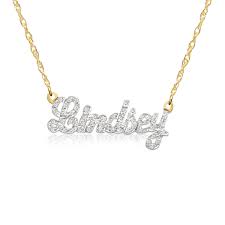How to Understand Accurate Pawn Shop Valuation Today
Introduction
Pawn shops offer a fast and accessible way to get cash in exchange for valuables. Whether you're pawning a watch, gold jewelry, a designer handbag, or electronics, the amount you’re offered depends heavily on the shop’s valuation process. Many people are unsure how pawn shop valuation works, which can lead to confusion or accepting less than an item’s worth. Understanding how accurate valuation works today can help you make informed decisions and get fair value for your items.
What Factors Affect Pawn Shop Valuation
pawn shop valuation items based on their resale value rather than sentimental or original retail value. Several key factors affect the final loan or purchase offer:
-
Condition of the Item: Items in good working order, clean, and undamaged will be valued higher.
-
Brand and Demand: Recognizable brands or items currently in demand (like gold chains, iPhones, or Rolex watches) will often fetch better prices.
-
Authenticity and Documentation: Items with original receipts, authenticity certificates, and packaging are more likely to receive accurate and higher offers.
-
Market Trends: If the market value of gold, electronics, or collectibles is high, your item’s valuation may increase accordingly.
-
Resale Potential: Pawn shops consider how quickly and easily they can sell the item if the loan is not repaid.
The Evaluation Process
Modern pawn shops use gold buyers Melbourne and digital tools to assess item value. Here’s how the process usually works:
-
Initial Inspection: The item is visually inspected and tested to verify condition, functionality, and materials.
-
Research: The shop may check current resale platforms like eBay or gold markets to determine the going rate.
-
Appraisal Tools: Some high-end pawn shops use certified appraisers, especially for luxury watches, diamonds, or rare items.
-
Offer Presentation: Based on their analysis, the shop will make an offer. This is typically a percentage of the resale value—often between 40% to 70%.
Understanding that a pawn shop isn’t buying your item for its retail price helps manage expectations. They need to factor in risks, storage, and resale margins.
How to Ensure a Fair Valuation
To ensure you receive a fair offer:
-
Get Multiple Quotes: Visit more than one pawn shop to compare valuations.
-
Bring Documentation: Certificates, receipts, and even photos from purchase time can support the item’s value.
-
Do Your Own Research: Know the item’s resale value online before you walk in.
-
Clean and Prepare Your Item: Presentation matters—clean, working items in good condition are more appealing to appraisers.
Being informed and prepared gives you a stronger position to negotiate or decline undervalued offers.
Conclusion
Pawn shop valuation has become more accurate and data-driven than ever before, but the key to getting a fair offer lies in understanding how the system works. By knowing the factors that influence value, preparing your item properly, and doing a bit of research, you can walk into a pawn shop with confidence and ensure you’re getting a deal that respects the true worth of your valuables.


Comments
Post a Comment